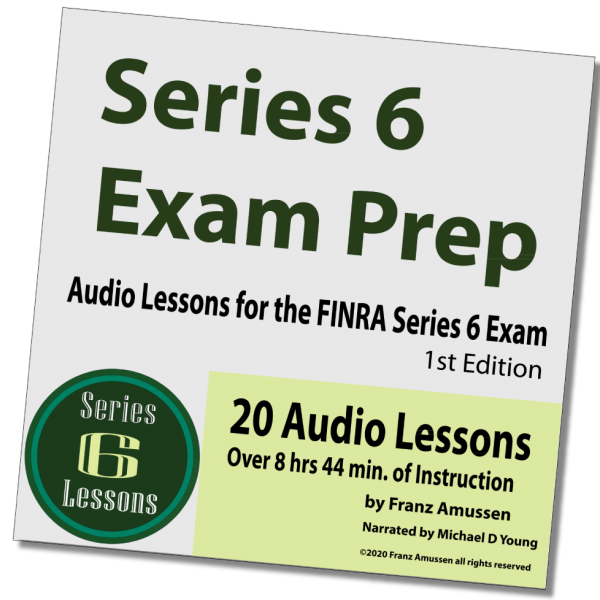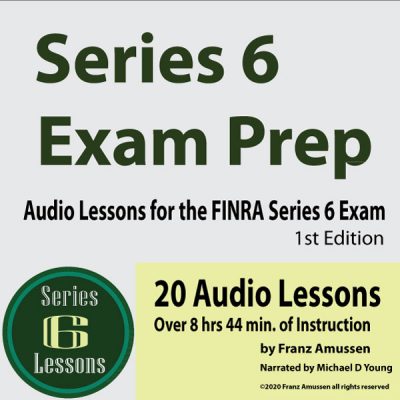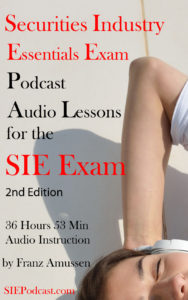Series 6 Lesson 14 Security and Exchange Act of 1934
Series 6 Lesson 14 Security and Exchange Act of 1934 is the topic of this lesson.
Series 6 designation means you will:
Execute purchase and sale orders for open-end funds,
Variable annuities,
Variable life insurance.
The trade date is when the buy/sell order is given. Three days later is the settlement date, when the transaction actually takes place. According to Regulation T, payments have to be made within two business days of settlement. If not, the customer will have his or her account frozen.
The SEC requires that brokerage orders are given a memorandum or order ticket. It will have the terms and conditions of the order, the time the order was received, the price, the names of all the parties involved. It does not have the agent’s commission or the rating of the bond.
Once an order has been executed, a trade confirmation is sent to the customer as a receipt of the trade. This has to be given before the settlement. They must include the following:
The date and time of the transaction.
The name of the securities
The price of the securities
Whether the member was the agent or the principal
One practice that must be avoided is called inter positioning. This is when a third party is involved in a transaction in a way that is not necessary and is not good for the customer.
FINRA Member firms have to send out quarterly account statements to their customers that show the current value for cash and securities, and a log of all the activity, sales and purchases, that took place. It should also include a statement to the customer asking them to immediately report any discrepancies.
The Securities Act of 1933 is also known as the Truth in Securities Act. It contains the following things:
Issuers = those who issue to propose to issue any kind of security
Sale/Sell = a contract of sale or disposition of a security/interest in a security for value
Offer/Offer for sale/Offer to sail = any attempt to offer a security/interest for value
Underwriter: a person/entity that has agreed to purchase securities from an issuer in order to sell or offer them to other investors.
Under Regulation A (Reg A) an issuer can sell up to five million dollars of securities in a year with out having to jump through all the regulatory hoops, such as filing a standard registration statement, they are allowed to fill out a much simpler form.
An intrastate offering is one that is only sold to those within a single state. They can get a Rule 147 exception so that instead of registering with the SEC, they can simply register with their state’s regulatory body instead.
Under Regulation D (Reg D) you do not have to register with the SEC if you are only participating in private placements to accredited investors. These kinds of investors do not need as much protection as typical investors. You can only have up to 35 non-accredited investors.
Series 6 Lesson 14
We also offer lessons for:
The Series 7 Exam
https://gumroad.com/l/ILYu
The Series 22 Exam
https://series6lessons.com/series-22-exam/
The Series 63 Exam
https://series6lessons.com/series-63-exam-lessons/
The Life Health Insurance Exam
https://series6lessons.com/insurance-lessons/
The SIE Exam (Securities Industries Essentials Exam)
https://series6lessons.com/finra-sie/
Click on any of them to find out more




